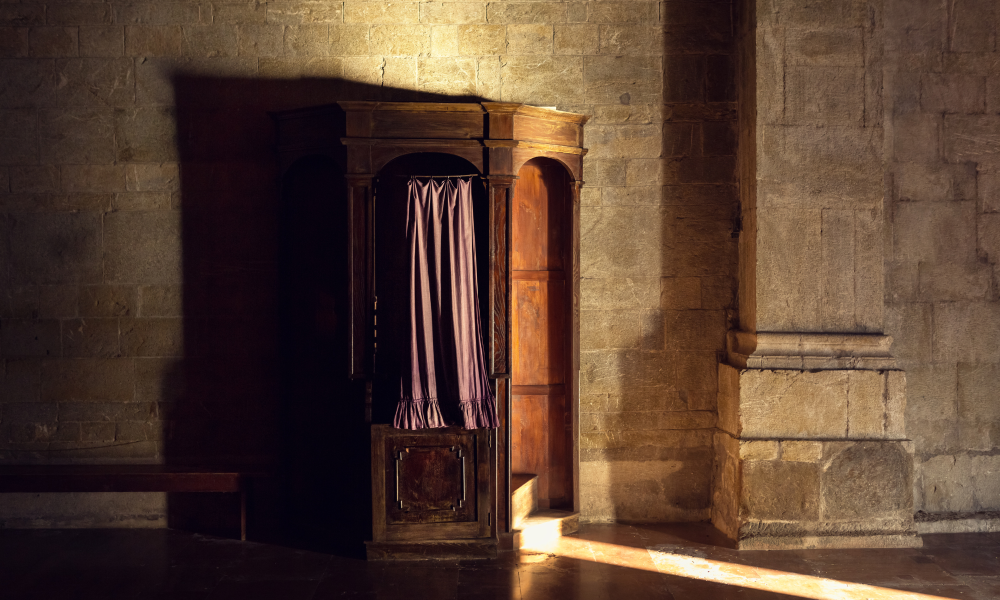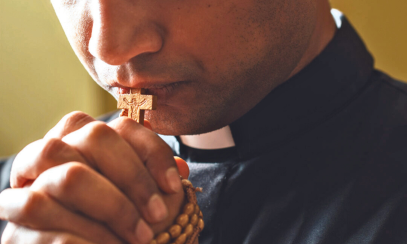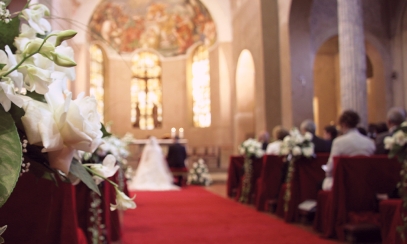
Forgiven through Christ: The Sacrament of Reconciliation
“The Lord Jesus Christ, physician of our souls and bodies, who forgave the sins of the paralytic and restored him to bodily health, has willed that his Church continue, in the power of the Holy Spirit, his work of healing and salvation, even among her own members.” (Catechism of the Catholic Church 1421) This is why we have reconciliation (or penance, confession), the sacrament in which sins committed after baptism are confessed after an examination of conscience and forgiven by a priest in the name of Christ.
“The Lord Jesus Christ, physician of our souls and bodies, who forgave the sins of the paralytic and restored him to bodily health, has willed that his Church continue, in the power of the Holy Spirit, his work of healing and salvation, even among her own members.” (Catechism of the Catholic Church 1421) This is why we have reconciliation (or penance, confession), the sacrament in which sins committed after baptism are confessed after an examination of conscience and forgiven by a priest in the name of Christ.
This is the fifth post in our series exploring the seven sacraments of the Catholic Church. Check out a brief overview of all seven sacraments here.
Why do Catholics celebrate reconciliation?
Reconciliation allows baptized Catholics to restore any brokenness in the relationship they have with God and the Church — a relationship which commenced at baptism. It is an endeavor of love and conversion, and one that is “not just a human work. It is the movement of a ‘contrite heart,’ drawn and moved by grace to respond to the merciful love of God who loved us first.” (CCC 1428)
“The Lord Jesus Christ, physician of our souls and bodies, who forgave the sins of the paralytic and restored him to bodily health, has willed that his Church continue, in the power of the Holy Spirit, his work of healing and salvation, even among her own members.” (CCC 1421)
Who can celebrate reconciliation?
After reaching the age of discretion, (about seven years of age), and after a diligent examination of conscience, the Church obliges all the faithful to confess our grave sins at least once a year. (CCC 1457, 1493)
Priests are the only ministers of reconciliation. (CCC 1461, 1495)
What happens during reconciliation?
Baptized Catholics prepare for reconciliation with prayer and an examination of conscience. The penitent will then meet individually – in the strictest confidence – with a priest acting in persona Christi (“in the person of Christ) to confess their sins.
After hearing the confession, the priest will then prescribe a penance. The penitent is invited to offer a prayer expressing sorrow for their sins, their intention to avoid sin in the future, and the desire to be reconciled with God. The priest then extends his hand over the penitent and prays the Prayer of Absolution, which expresses God’s desire to be reconciled to the penitent and to forgive their sins. Thanks is given to God, praising him for his love and mercy, before the penitent leaves the priest to complete their penance.
The biblical basis for reconciliation
Reconciliation is found in John 20:21-23:
“[Jesus] said to them again, ‘Peace be with you. As the Father has sent me, so I send you.’ And when he had said this, he breathed on them and said to them, ‘Receive the holy Spirit. Whose sins you forgive are forgiven them, and whose sins you retain are retained.’”



